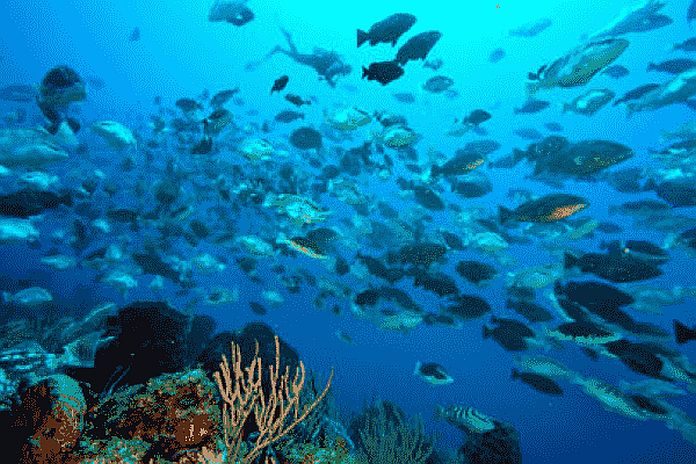GEORGE TOWN, Cayman Islands (CNS) – Successful conservation efforts in the Cayman Islands to protect the now critically endangered Nassau grouper have been documented in an academic report, published this week, that underscores how important marine protection can be. The Grouper Moon Project, a joint effort by the Department of Environment and US-based scientists at the aggregate site off Little Cayman, has documented how grouper numbers have recovered and set a scientific precedent to protect large-bodied fish that form spawning aggregations, making them vulnerable to over-fishing.
The research published in PNAS covers work conducted in Cayman waters over 15 years aimed at recovering the collapsed stocks of Nassau grouper. The data shows that the grouper population on Little Cayman has more than tripled in response to the conservation, which saw the former Marine Protection Board place restrictions on taking grouper, seasonal closures and bans on fishing at the hole.
The authors of the important peer-reviewed work said that the Nassau grouper “have undergone a remarkable recovery”, which is due to the implementation of deliberate “science-based conservation strategies”. The scientists said, “Little Cayman is now home to the largest remaining identified Nassau grouper aggregation anywhere in the world.”
The scientific work has helped to prove that well managed marine conservation is essential and can reverse significant declines. While ocean biologists know the targetting of large spawning reef fish has resulted in near extinction for some reef fish around the world, clear evidence that management actions can succeed in reversing dangerous declines have been scarce.
“In this study, we conclusively demonstrate that aggressive FSA protections in the Cayman Islands have resulted in the sustained recovery of an endangered reef fish that was previously on the brink of extirpation,” wrote the authors, which include DoE scientists Croy McCoy, Phillippe Bush, and Brad Johnson. “Our work provides clear evidence that Nassau grouper FSAs can recover through concerted management action and effective enforcement and compliance.”
Alongside the important conservation measures and protections, the Grouper Moon Project by REEF (Reef Environmental Education Foundation) and the DoE has also contributed to the preservation efforts and the data collection.





